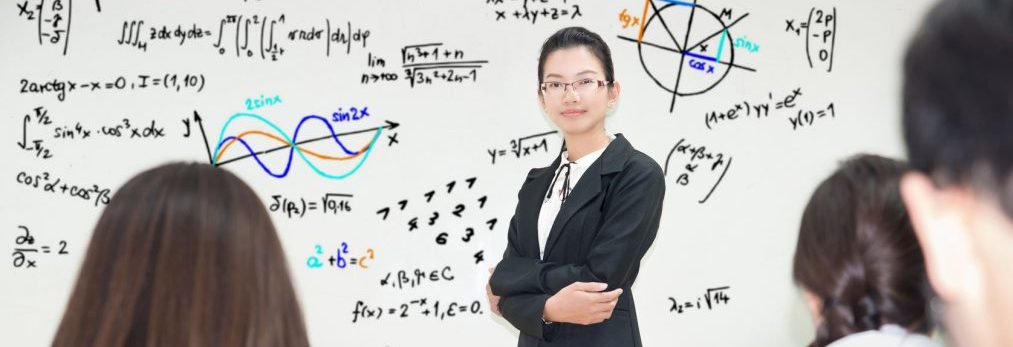7 Multiple Intelligences: Which One Are You?
You can learn and absorb information faster with the right learning styles. Read on to find out which type(s) of intelligence you are!
Updated 05 Mar 2019

It is an undeniable fact that everyone learns differently. Some may be extra proficient with mathematical reasoning, while others can master languages faster than their peers.
Depending on what type of intelligence you fall under, using the right learning style will optimise your learning sessions so that you can absorb information more effectively.
Drawing from Howard Gardner’s theory on Multiple Intelligences, learn more about the 7 different intelligences and find out how you can best capitalise each of them by changing your learning methods.

#1. Visual (Spatial) Intelligence
Do you always have to contain a sense of repulsion and disgust whenever you open a book with endless walls of text?
If so, you’re likely a Visual learner.
Visual learners thrive in their learning with the help of diagrams, pictures, videos and most other mediums as long as it’s not the oh-so boring words.
Study Tip:
Watching illustrated educational videos should be your favourite go-to strategy to retain information. You best bookmark sites like Khan Academy on your browser.
If you're doing it old school, you’ll definitely need a notebook or sketchbook with you. Learn how to identify important information and transfer them into diagrams, mind maps or even flash cards for easy reference in the future.
You may also want to get a bunch of colourful Sharpie pens or highlighters to colour-differentiate the points based on their importance.

#2. Aural (Musical) Intelligence
If you find yourself unable to sustain your concentration during your study sessions without having a set of headphones on, then you’re likely an Aural learner.
Aural learners find it easier to associate and visualise what they are studying with rhythms and sounds as company. These sounds that enable them to concentrate do not necessarily need to be in the form of music – they can be natural noises, like the ambient sounds of coffee shops or falling rain.
Study Tip:
Save a list of your favourite instrumental / classical songs* that you can loop over and over as you get into the zone with your studies. Of course, make sure you get a pair of good and comfortable earphones to avoid getting a headache or hurting your ears.
Using mnemonics, acrostics, rhymes, or creating a jingle will help you create stronger associations with key points so that you can remember them better.


#3. Verbal (Linguistic) Intelligence
Verbal students learn through speaking and writing. They also enjoy playing with words and exploring the meaning or sound of words.
Verbal learners are typically involved in public speaking, debating or journalism. Such platforms serve as their natural playing ground, further enhancing their learning abilities through verbal means.
Study Tip:
Like Aural learners, you thrive with the use of mnemonics, acrostics, rhymes and jingle.
You may also find that you can recall information better if you read your study material out loud. The key thing about reading out loud is that you should read it as if you are giving a lively speech instead of a monotonous one. That will make studying much more enjoyable.
Apply for university with EduAdvisor
Secure scholarships and more when you apply to any of our 100+ partner universities.
Start now
#4. Physical (Bodily – Kinaesthetic) Intelligence
Do you always feel the urge to move around? Find yourself constantly fiddling with something whenever you sit down to revise?
Perhaps you're a physical learner.
Physical learners grasp knowledge best when they are involved in hands-on activities. They much rather meddle and work their way by putting things together, instead of taking time to understand diagrams or how-it-works processes.
And no, do not associate Physical learners with those diagnosed with Attention Deficit Hyperactivity Disorder (ADHD). Physical learners just need a different learning setting.
Study Tip:
Technical and life skill subjects may be your strong core, since more hands-on work is involved.
However, you can also work your way around for other subjects. Try to incorporate bodily movement as much as you can in your learning. Use your finger to track along as you read, and jot down notes on flashcards or small pieces of papers so that you can touch and move them around as you study.
You can also draw diagrams or mind maps on big sheets of papers. This requires plenty of action, fulfilling your urge to move and to learn better.
It’s also easier for you to learn text-heavy subjects like History through simulations and role-playing with your family or friends.

#5. Logical (Mathematical) Intelligence
As a Logical learner, you are most comfortable when it comes to logical and mathematical reasoning exercises. Needless to say, your favourite subject is probably Mathematics.
You also have the ability to recognise patterns and are able to connect or group separate information together to better understand them. Strategy games are very likely a favourite too.
Study Tip:
Rote-style learning and plain memorising is highly unlikely to work for you. You’ll need to understand how one information is related with another.
Translate your chapter notes to tables, diagrams or mind maps. Outline important points and create flow processes so that it’s easier for you to see the big picture and clearly remember them.
Beware that you may overanalyse (analysis paralysis) certain facts or information. If you find yourself stuck for a long while with a particular chapter or topic, get clarifications from your teachers or peers to avoid going down a rabbit hole.

#6. Social (interpersonal) Intelligence
If you love being with people, and find that you can progress faster with the company of good friends instead of alone, then you’re most likely a Social learner.
As a Social learner, you prefer to work through problems and tasks in a group. You also learn best by listening and obtaining feedback from peers and teachers about your thoughts and ideas.
Study Tip:
You need to get a group of good friends to study together.
But make sure your friends are committed to their studies and will not distract you. It's extremely easy to deviate from study plans in a group, turning it into a "hang-out session" instead (trust us, we've been there!).
To remember facts better, get your friends to do pop quizzes. You can also consider re-enacting scenes or role-playing with your friends.


#7. Solitary (Intrapersonal) Intelligence
Unlike Social learners, you find it difficult to concentrate whenever you’re asked to join in a group study. Instead, you feel like you could have gotten a lot more studying done if you were alone.
You might be a Solitary learner.
Solitary learners often require time on their own, where they get busy in their own minds. They prefer to study, think and work on problems by themselves.
Study Tip:
You learn best when you’re alone. Find a desk-mate who is similar (read: quiet) so that you can focus. If you do not have a room for yourself at home to study, consider visiting the library as an alternative.
However, it is crucial that you try not to spend too much time by yourself solving a problem. If you think that too much time has gone by, don't be shy to reach out to your teachers or friends. Remember, two heads are better than one.
In conclusion...
Different people have different intelligence types, which can affect how they learn.
It's important to note that you can fall into multiple categories of intelligence. Therefore, if you are still clueless as to which type of intelligence you are, try testing and experimenting with various learning styles and environment to find out which works best for you.
The more you understand yourself and how you learn best, the better you will be at creating an optimal environment to study better and absorb information more effectively.






